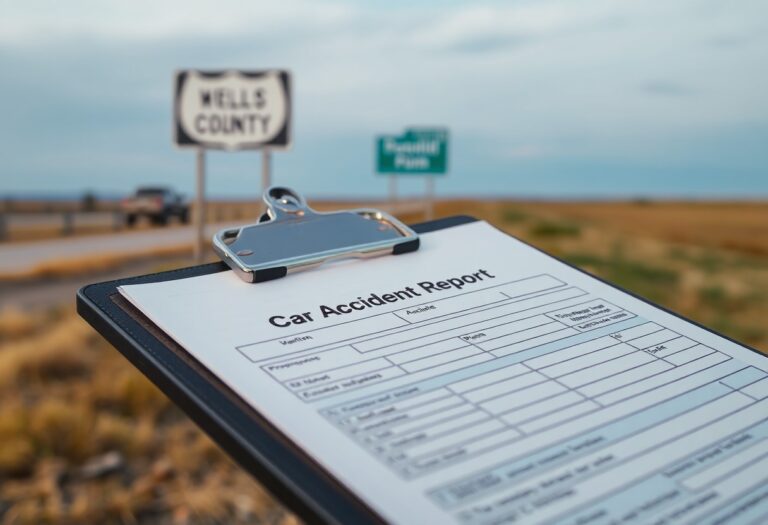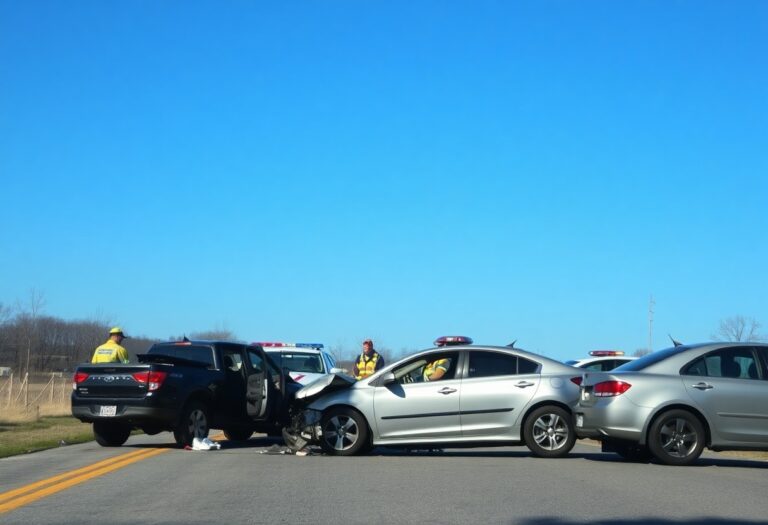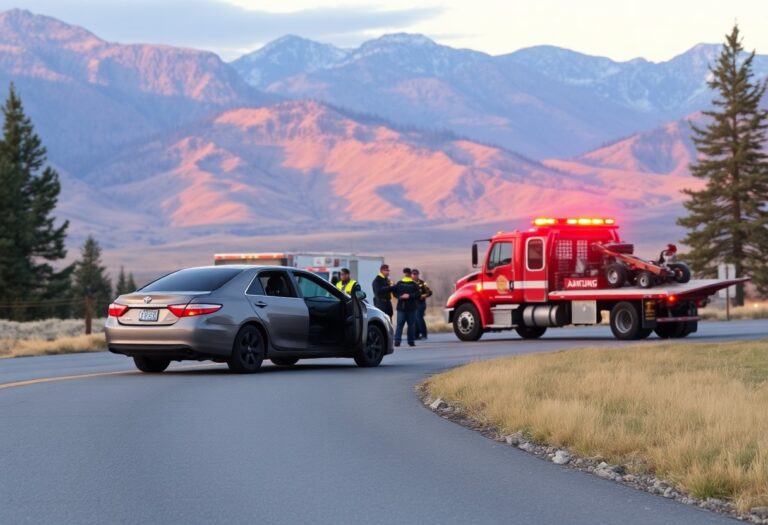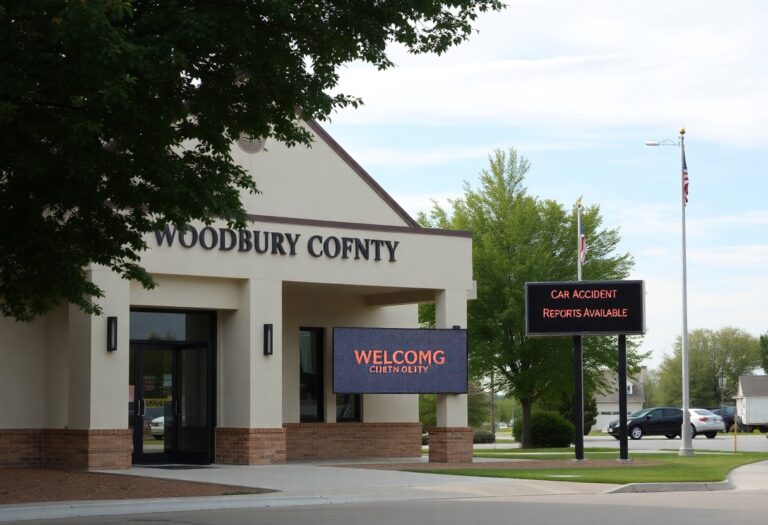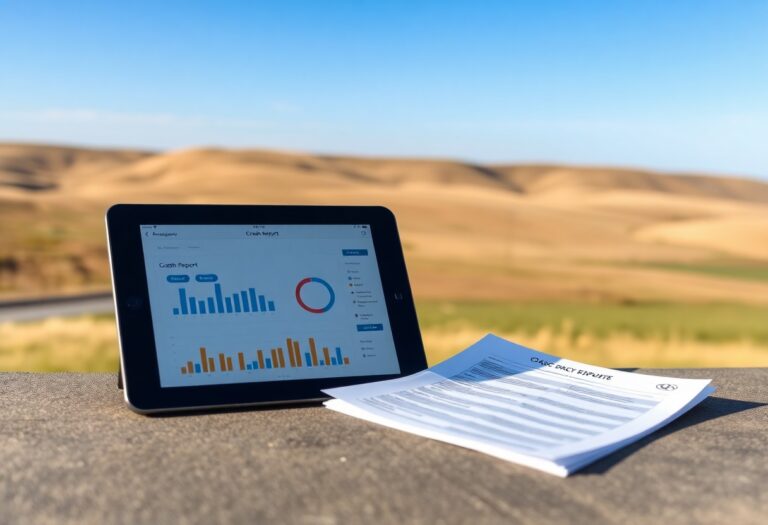It’s necessary for you to understand the process of obtaining your car accident reports in Calhoun County, Iowa. Whether you’re filing an insurance claim or keeping a record for your own reference, knowing the right steps can make the process more efficient and less stressful. In this guide, you’ll find everything you need to navigate through the legal and administrative tasks involved in securing these important documents.
Navigating the Legal Framework for Accident Reports
Obtaining car accident reports in Calhoun County, Iowa, requires an understanding of the legal framework surrounding these documents. Accident reports are typically classified as public records, but access can be limited based on the nature of the incident and who requests them. Being aware of the laws that govern public access can simplify the process and help you engage with the right authorities efficiently.
The Role of Public Records in Iowa
In Iowa, public records, including car accident reports, are governed by the Iowa Open Records Law, ensuring transparency and accountability from public agencies. This legislation enables you to request access to records maintained by law enforcement, which can include details such as the names of the parties involved, witness statements, and accident location descriptions.
Understanding Privacy Laws and Access Rights
Privacy laws play a significant role in determining your access to accident reports. Certain sensitive information, such as personal identifying details or medical records, may be redacted to protect individuals’ privacy. Understanding which aspects of the report are accessible to you ensures you can effectively navigate these regulations.
Privacy considerations often dictate that only specific parties, such as individuals directly involved in the accident, may obtain unaltered reports. While the Iowa Open Records Law promotes public access, the *Iowa Department of Transportation* and other entities may impose restrictions on specific data for protection reasons. Always check with the local law enforcement agency for comprehensive guidelines on how to access the reports you need legally and what limitations may apply in your situation.
Step-by-Step Guide to Requesting Your Accident Report
| Step | Description |
|---|---|
| 1 | Gather necessary information about the accident, including date, time, and location. |
| 2 | Identify which agency responded to the accident: local police or county sheriff. |
| 3 | Decide whether to submit your request online or in person. |
| 4 | Complete the request form and provide any required identification. |
| 5 | Pay any applicable fees to obtain your report. |
| 6 | Await your report, which typically arrives within a few days. |
Gathering Necessary Information
Before reaching out for your accident report, compile crucial details related to the incident. You’ll need the specific date, time, and location of the accident, along with your personal information and possibly your driver’s license number. Having this data ready streamlines the request process, allowing you to retrieve your report promptly.
Choosing the Right Agency: Local Police vs. County Sheriff
Determining whether to contact the local police or the county sheriff’s department hinges on which agency responded to your accident. Local police typically handle incidents occurring within city limits, while the county sheriff oversees accidents in unincorporated areas. Ensuring you request the report from the right agency is critical to receiving accurate information.
If your accident unfolded within city limits, reaching out to the local police department will yield the fastest results. On the other hand, if it took place in a rural area, coordinate with the county sheriff’s office. Each agency may have different protocols and forms, so it’s crucial to check their specific guidelines to avoid delays or complications when obtaining your report.
Online vs. In-Person Request Procedures
You have the option to request your accident report online or in person, depending on your convenience. Online requests often allow immediate access to required forms and information, while in-person visits can provide additional assistance should you have questions.
Online procedures are typically straightforward, requiring you to fill out a form on the agency’s website. Many law enforcement agencies offer secure platforms for transactions and document access. In contrast, visiting an agency in person may allow you to get instant feedback from personnel who can clarify any uncertainties you might have about your request. Consider what works best for your situation and comfort level.
Analyzing Report Information: What to Expect
Analyzing your car accident report helps you understand the details of the incident, which can be vital for insurance claims or legal proceedings. Expect to find information regarding the date, time, and location of the accident, along with a description of the involved parties, vehicles, and damages incurred. Additionally, witness statements and police observations provide context that could strengthen or weaken your position in any disputes that may arise.
Key Components of a Car Accident Report
Key components of a car accident report typically include demographic information about the drivers, vehicle identification numbers (VINs), insurance details, and a summary of the accident. Essential diagrams or sketches illustrating the accident scene may also be present, showcasing the positioning of vehicles and any relevant road signs. Understanding these elements empowers you to effectively leverage the report in your investigation or claim process.
Common Errors and How to Address Them
Errors on your accident report can hinder your ability to make a strong case. Mistakes may involve inaccurate dates, misidentified vehicles, or incorrect witness information. Addressing these issues typically requires contacting the issuing police department to request amendments. Always document your communication and ensure any corrections are noted on the report for future reference.
Errors potentially lead to complications during your insurance claim or legal battle, so act quickly to rectify them. Familiarize yourself with the corrections process specific to Calhoun County; sometimes, you’ll need to fill out a correction form or provide additional evidence to support your claim. By promptly ensuring accurate information, you improve your chances of a favorable outcome and prevent any unnecessary delays in handling your case.
The Importance of Your Accident Report in the Claims Process
Your accident report serves as a foundational document in the claims process, influencing the trajectory of your case significantly. This official account details the events surrounding the crash, including driver details, witnesses, and contributing factors, which can affect liability determinations and compensation amounts. Having a clear, accurate report allows you to present a solid case to both insurance companies and legal representatives, making it an important piece of your claim’s puzzle.
How Accident Reports Affect Insurance Claims
Accident reports play a vital role in the processing of insurance claims, as they provide factual evidence that insurers rely on to assess damage and assign fault. If discrepancies arise, such as conflicting statements or missing information, it can lead to delays or even denials of your claim. Accurate reports ensure a smoother claims process and better protect your interests as a policyholder.
Evidence for Legal Proceedings and Settlements
Your accident report can serve as strong evidence in legal settings, including negotiations and court proceedings. It establishes a factual basis for the claims you make regarding damages and injuries, making it difficult for the opposing party to challenge your account. An accurate report can also expedite the process of reaching a fair settlement, as both parties are more likely to be aligned on the details of what occurred.
In legal proceedings, the weight of your accident report becomes even more pronounced. Courts often rely on these documents to establish a timeline and verify the parties involved. For instance, if your report notes eyewitness accounts or specific traffic conditions at the time of the accident, this information can strengthen your legal argument. In cases of contested liability, a detailed accident report serves as a crucial reference point, substantiating your claims and enhancing your position during negotiations or courtroom disputes.
Local Resources and Support for Victims of Car Accidents
In the aftermath of a car accident, accessing local resources can significantly assist you in navigating the recovery process. Calhoun County offers various supportive services for accident victims, including counseling, financial assistance, and legal guidance. Local non-profit organizations and community centers often provide workshops and resources to help individuals make informed decisions and cope with the emotional toll of an accident. Connecting with these resources can aid in your healing journey and provide the necessary tools to regain stability in your life.
Contacting Local Legal Aid and Support Services
When seeking legal assistance following a car accident, reaching out to local legal aid organizations can be beneficial. Many of these services offer free consultations and can help you understand your rights, options, and possible compensation claims. For instance, organizations like Iowa Legal Aid provide resources and legal representation to ensure you don’t navigate the complex legal landscape alone. This is especially crucial if you’re facing injuries, treatment costs, or insurance disputes.
Community Programs for Post-Accident Assistance
Community programs designed for post-accident assistance play a vital role in your recovery. Organizations like the Calhoun County Community Foundation often sponsor support groups and workshops to connect accident victims with the right resources, offering both emotional and practical support. Additionally, local health departments may host events that focus on safe driving, as well as provide information about physical and mental health services available to those recovering from accidents.
Engaging with these community programs not only connects you with necessary resources but also fosters a support network among those who share similar experiences. Programs may offer ride services for medical appointments, rehabilitation resources, and even mental health counseling tailored to accident recovery. These collaborative efforts can empower you to move forward from the traumatic experiences of a car accident, ensuring you receive the comprehensive support you need during this challenging time.
Final Words
Taking this into account, obtaining your car accident reports in Calhoun County, Iowa, is straightforward. By knowing the right channels—such as the local law enforcement agencies or online request forms—you can efficiently access the documentation you need. Ensure you have all necessary details on hand to expedite the process. With this knowledge, you can navigate the system confidently, securing your reports with ease.








